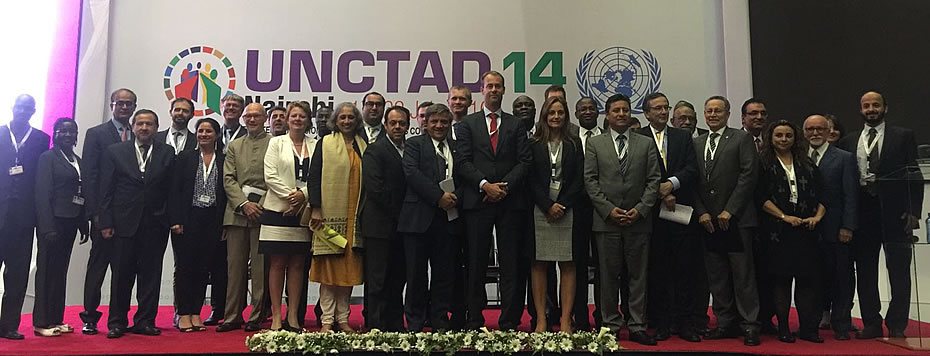Some 90 countries backed an UNCTAD - FAO - UNEP initiative on Wednesday, signing up to a roadmap towards ending harmful fishing subsidies.
Fishing subsidies are estimated to be as high as $35 billion worldwide, of which $20 billion directly contributes to overfishing. According to FAO data, the share of fish stocks within biologically sustainable levels continues to decline, falling from 90 percent under sustainable levels in 1974 to 69 percent in 2013.
Linked to this precipitous decline in fish stocks, global leaders agreed last September a new sustainable development goal (SDG) on fisheries, Goal 14, to conserve and sustainably use the oceans, sea, and marine resources. Target 14.6 addresses the harmful subsidies directly. It has re-energised efforts to reduce subsidies on fisheries.
"Getting 90 countries to sign up to a new initiative in such a short period of time shows both the need for this initiative and the power of UNCTAD in building consensus for meaningful change", UNCTAD Secretary-General, Dr. Mukhisa Kituyi said.
"I welcome this collaboration with our colleagues at the FAO and UNEP, and look forward to engaging the fisheries sector with our trade and economics expertise," he said.
The roadmap includes a four-point plan:
-
Require countries to provide information on what subsidies they are providing.
-
Prohibit those subsidies which contribute to overfishing and illegal fishing.
-
Introduce new policies tools to deter the introduction of new harmful subsidies.
-
Provide special and differential treatment to developing countries.
Fisheries are a key source of protein and livelihoods for the millions in coastal communities, who are powerless by themselves to tackle the heavily subsidized industrial fishing boats and the overfishing that these involve.
At the launch, UNCTAD Deputy Secretary-General Joakim Reiter said: "The status quo means that we have been watching a tragedy unfolding, without taking sufficient action. It is, frankly, a scandal".
"This roadmap is a strong and unequivocal plea by all those supporting the joint UNCTAD-FAO-UNEP statement that elimination of harmful fisheries subsidies must be achieved by the next WTO Ministerial Conference in 2017. What we are saying, with one voice, is that decisive action in this area is long overdue," he said.
UN Environment Executive Director Erik Solheim said: "The time for short-term thinking is over if we are to secure human health and prosperity for centuries to come. After all, if there are no fish left in the sea, there will be no fishing industry."
Kosta Stamoulis, Assistant Director General of the FAO, said the roadmap manifests joint resolve to move "from decisions and proclamations to action" in line with UNCTAD14's theme. He expressed FAO's readiness to support developing country fishing nations to strengthen capacities of their national authorities to introduce and implement effective fish management.
Pascal Lamy, former Director-General of the WTO and former Global Ocean Commissioner, who was present at the launch, welcomed the use of UNCTAD14 to get more countries to sign up and create more pressure for a robust solution in the WTO. "That's what politics is about," he said. "Building a coalition."
The joint UNCTAD - FAO - UNEP roadmap also has support from 4 international and regional governmental organisations, including the Commonwealth and African, Caribbean, and Pacific Group (ACP). It also has support from 10 global civil society organizations, including WWF, Oceana, CUTS International and International Institute of Sustainable Development.

Download:



